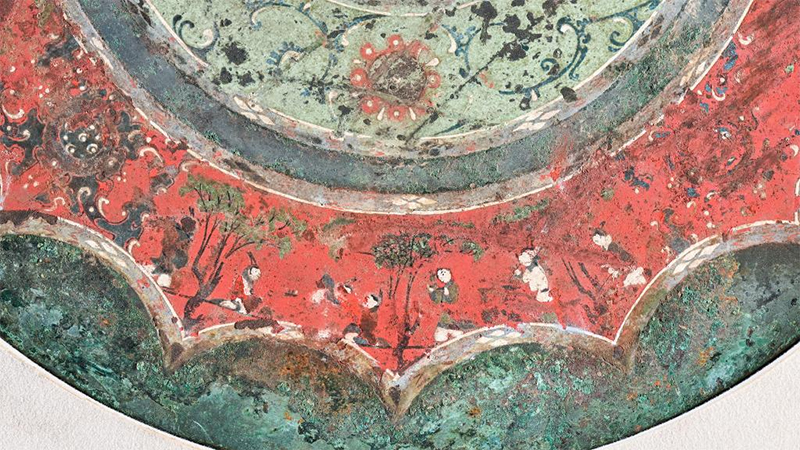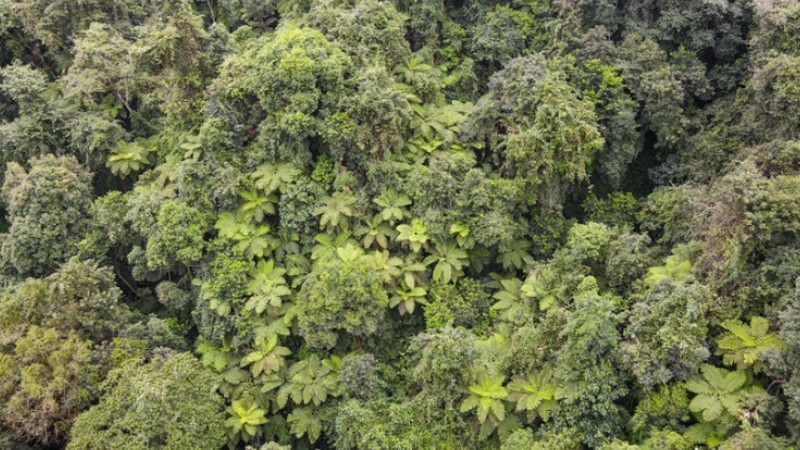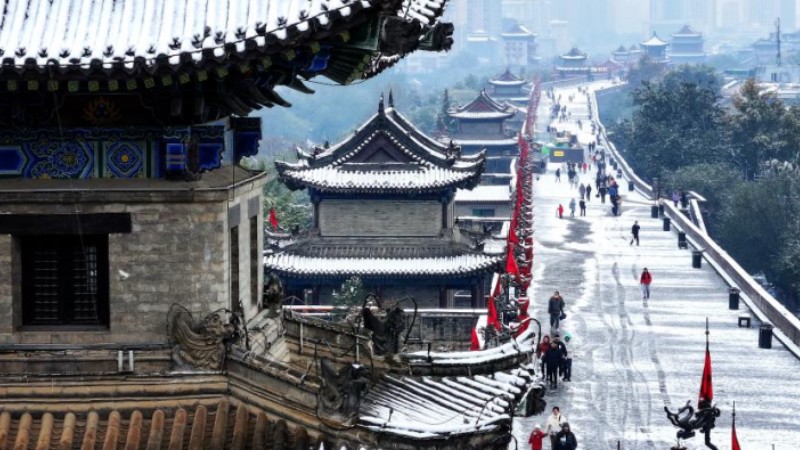Ethnic solidarity brings prosperity to small town in northwest China
YINCHUAN, Nov. 19 (Xinhua) -- At the Xiafan Village of Xinglong Township in Xiji County, Ningxia Hui Autonomous Region in northwest China, villagers have the tradition of solving disputes through friendly discussions.
Xiafan Village is now known as a model village of ethnic solidarity, with its inhabitants being half-ethnic Han and half-ethnic Hui.
"We are closely following the policy of the Party on ethnic solidarity and are working out a set of practices to solve any dispute at the earliest time, with many years of experiences at the grassroots," said Tian Lei, Party secretary of the village.
Ethnic solidarity in Xinglong was also recorded in 1935 when the Red Army passed through Xiji's Shanjiaji, where ethnic Hui people mainly inhabited at that time.
Now, an old courtyard house in Shanjiaji, which once hosted Chairman Mao Zedong, has become a museum greeting hundreds of thousands of visitors each year.
"Locals in Shanjiaji then welcomed the Red Army with food, tea, and other necessities, but the soldiers, abiding by strict discipline, paid all with money and refused to take anything for free," said Ma Xiao with the local chronicles office.
Ethnic solidarity has brought peace and prosperity to the area.
Xinglong has a shopping street known by locals as the "Street of Poyi." "Poyi" means married women in the local dialect. It's named so because most of the shops are run by local married women, particularly women of the Hui ethnic group.
Ethnic clothes, delicate carpets, cosmetics, daily necessities, and different kinds of halal food can be spotted everywhere on the street, where one can feel the dynamic atmosphere of cosmopolitanism.
Zhao Ping, 54, now owns a store on the street. She used to be a small vendor, struggling to make ends meet.
"The local government has provided us with necessary guidance and subsidies to help us start our own businesses. We can run our business here with ease and expect a rosy future," Zhao said.
Abdullah Maimaiti, an ethnic Uygur food seller, has lived in Xinglong for three years with his family. His two children are attending school while he and his wife are running a store selling cakes, grapes, and other food products from Xinjiang.
"Here, the people are extremely friendly with me, and they help us whenever we need it," he said.
As winter is coming, the villagers are busy preparing for the yearly cattle trade festival, in which over 200,000 heads of cattle are sold each time.
"I expect to earn 12,000 yuan (about 1,673 U.S. dollars) at the cattle trade festival in the upcoming January by selling over 20 cattle heads," said Wang Long, a local villager who is specialized in cattle raising and has been joining the festival since a young age.
"This cattle trade festival has been going on for over 100 years as Xinglong is located at the center of several cattle raising counties in Ningxia and Gansu, and people have a long tradition of coming here to trade cattle," said Wang.
Xinglong has grown into one of the largest cattle trading markets and an important trade center of vegetables and beef in Ningxia's Xihaigu area, thanks to the convenience of newly built highways.
The prosperity of the township was demonstrated by its hosting of a national farmers' basketball league tournament in August, with the local team having qualified for the finals in Guizhou Province next year.
By promoting basketball games, the township has risen into a local sports center benefiting restaurants and hotels.
"I can earn an extra 5,000 yuan a day when there is a competition in our town, as people from neighboring areas flock here to watch basketball games," said Ye Haijun, a 38-year-old restauranteur.
To support grassroots basketball development, the local government has built a large outdoor basketball court that can accommodate 30,000 people and a basketball gymnasium.
Photos
Related Stories
Copyright © 2023 People's Daily Online. All Rights Reserved.









